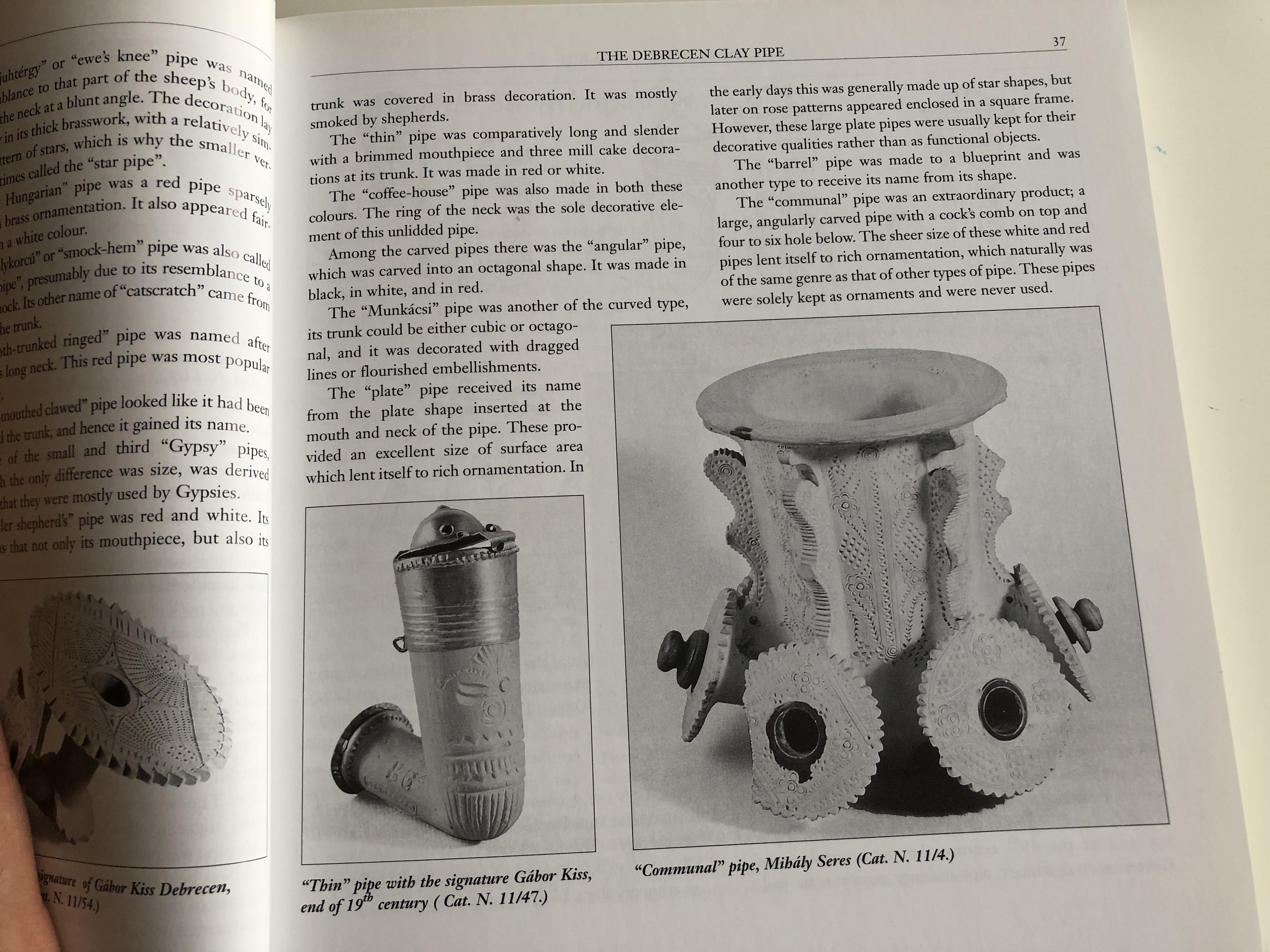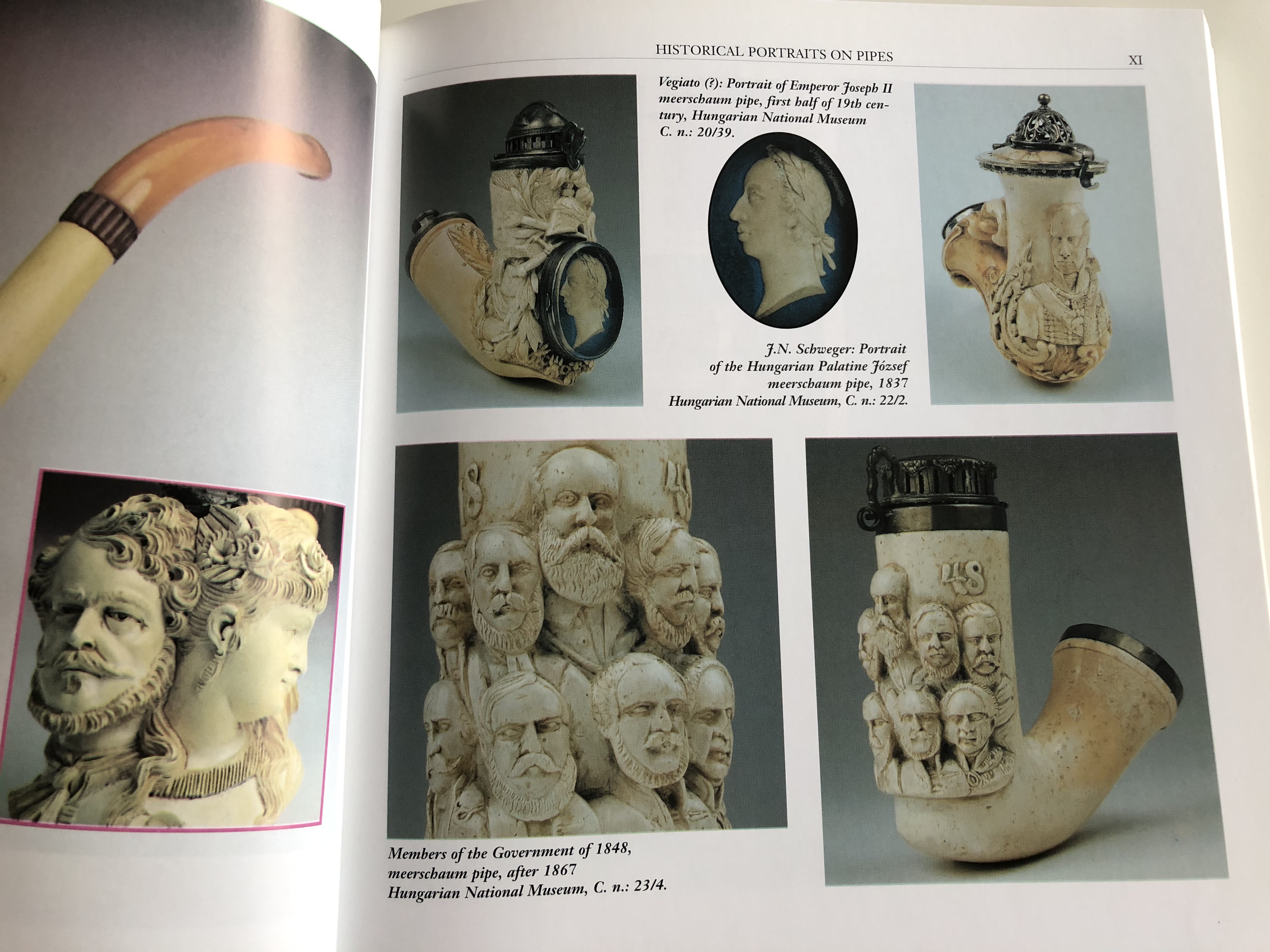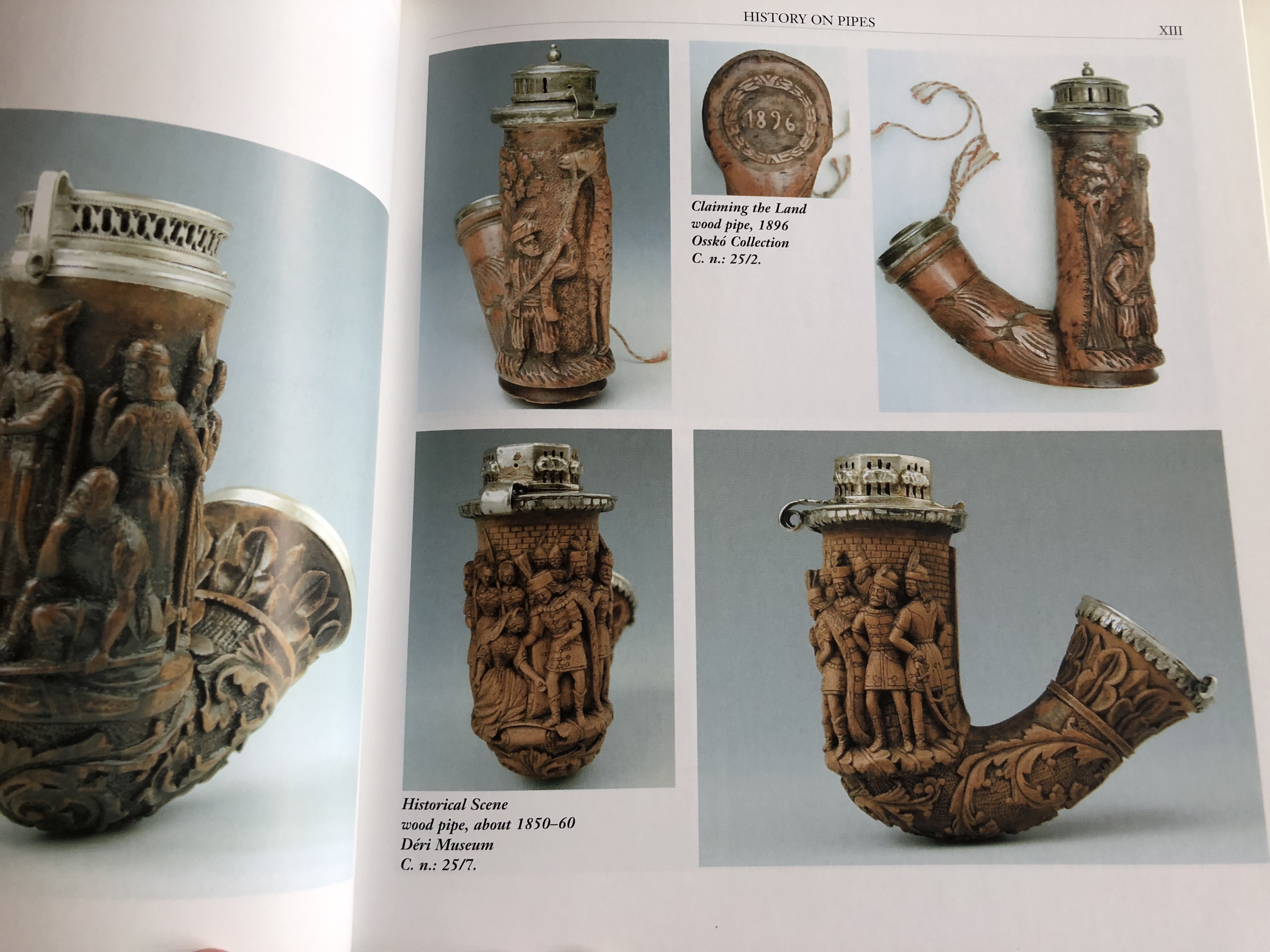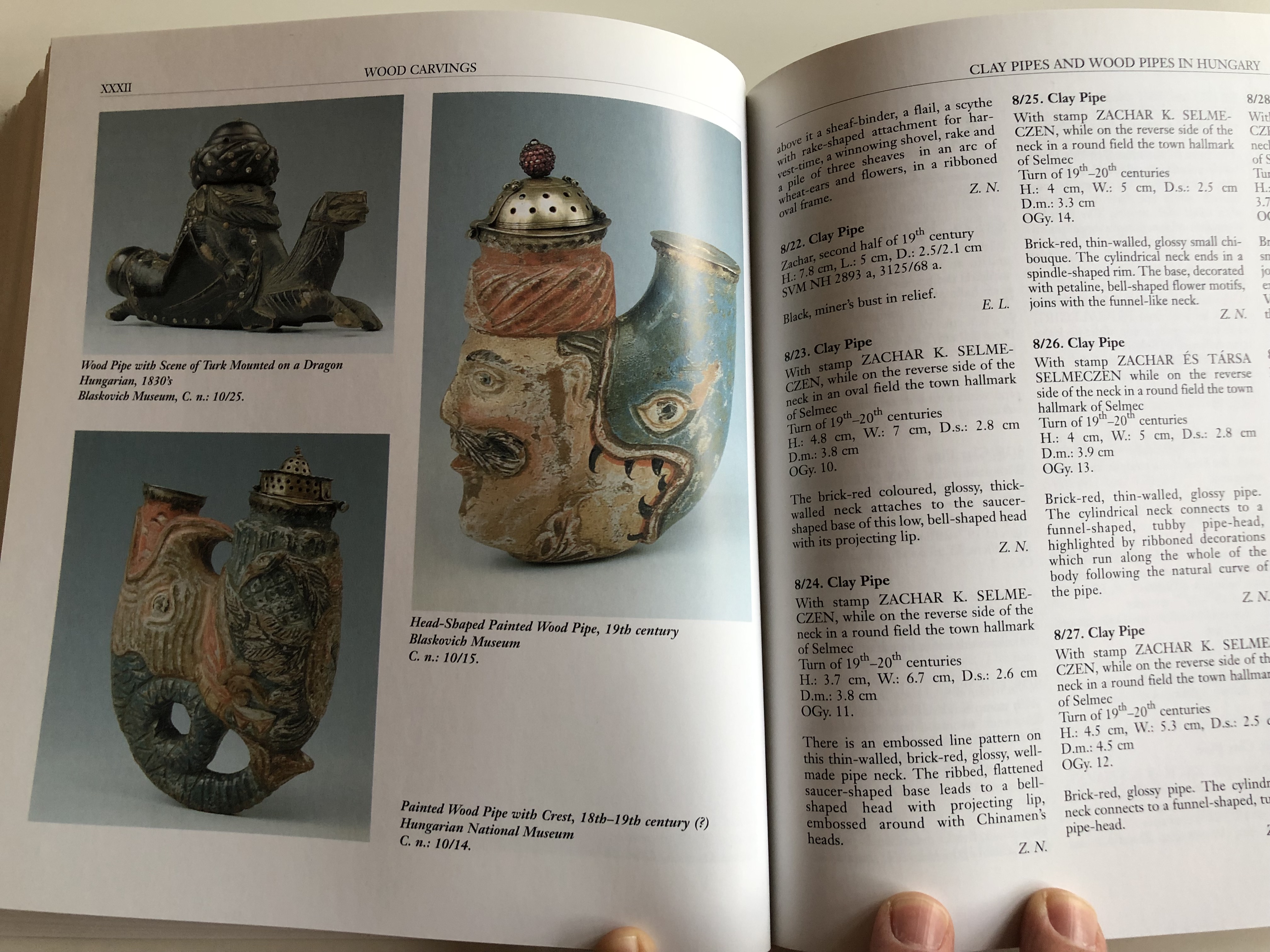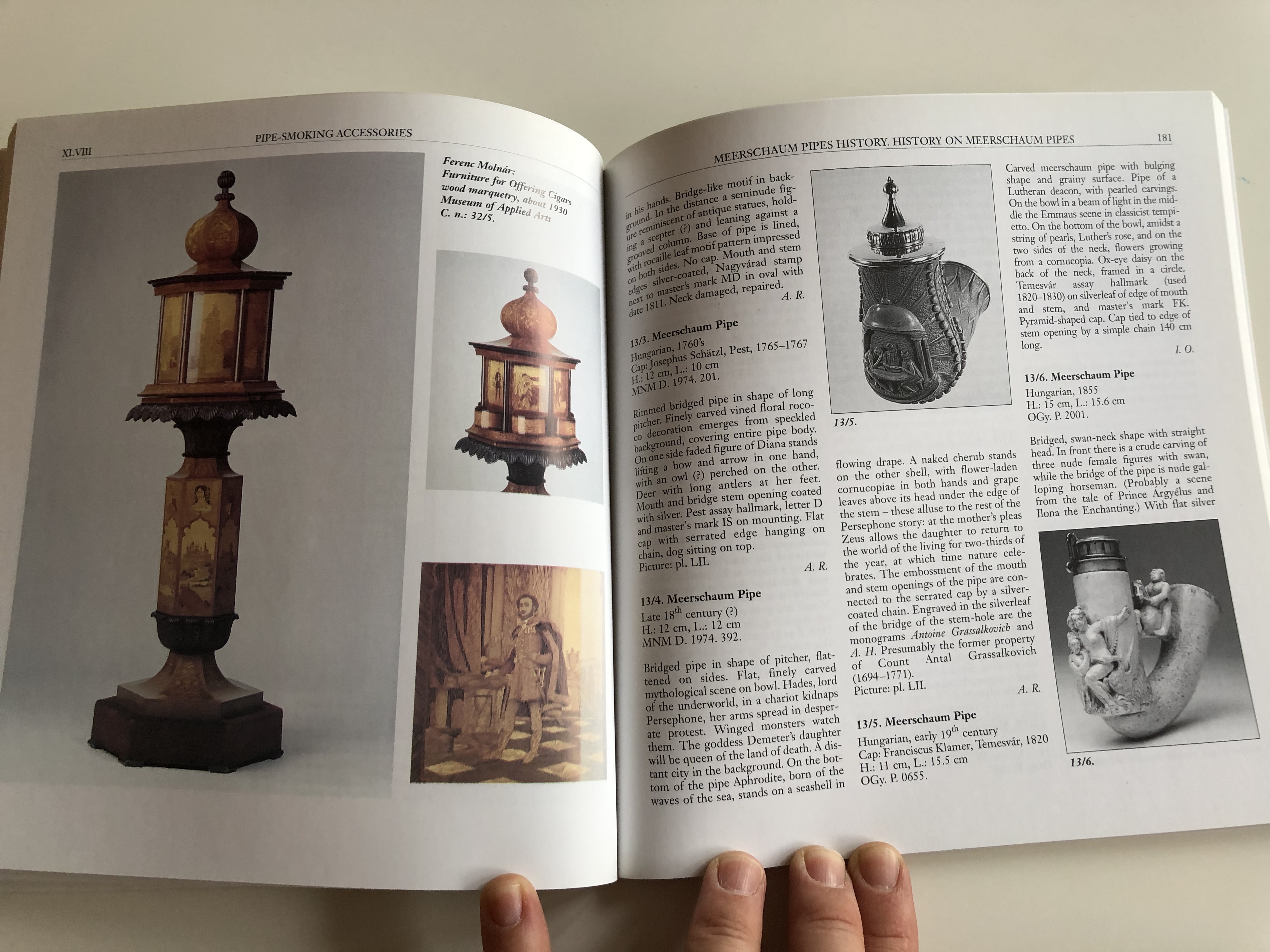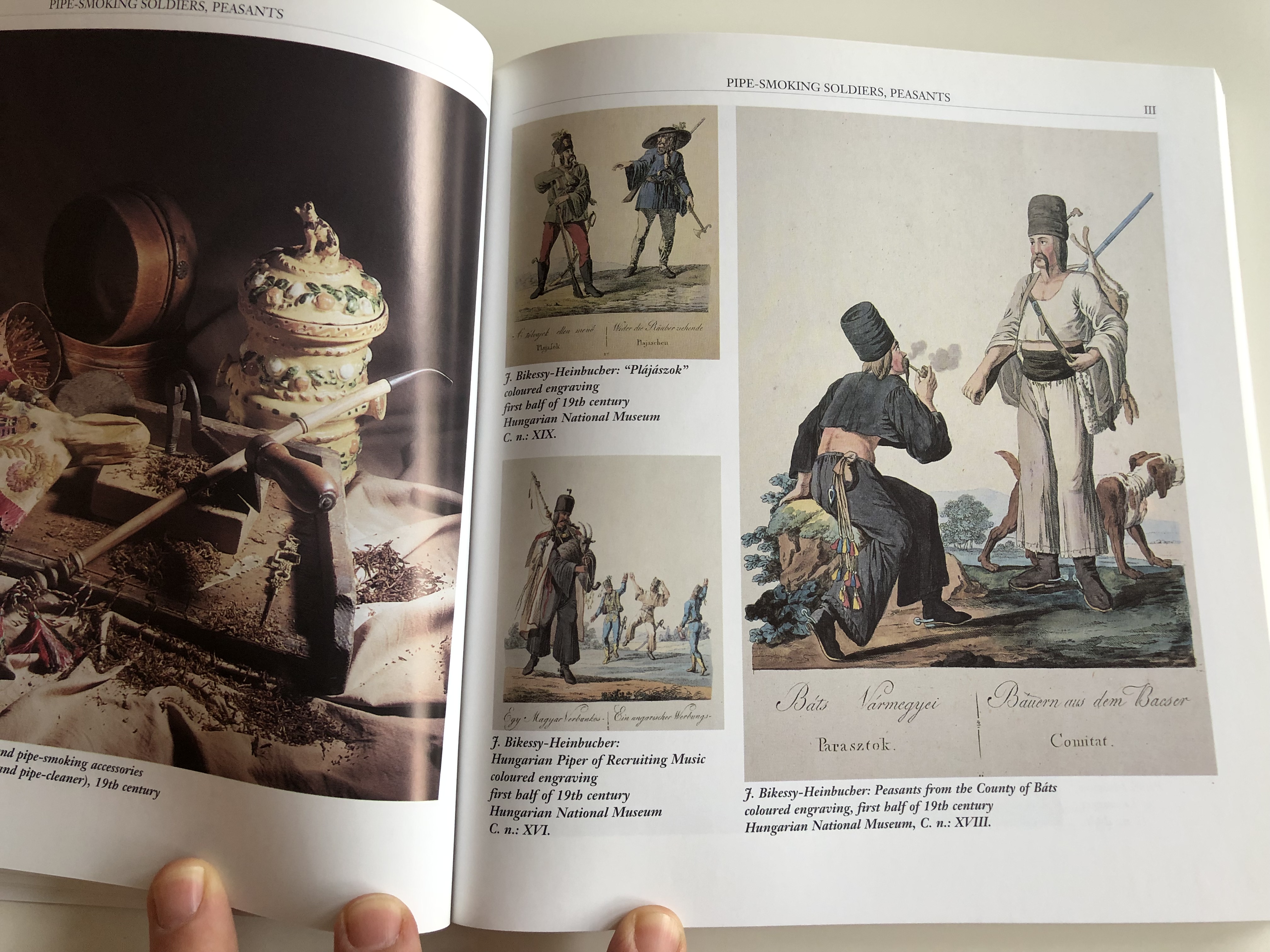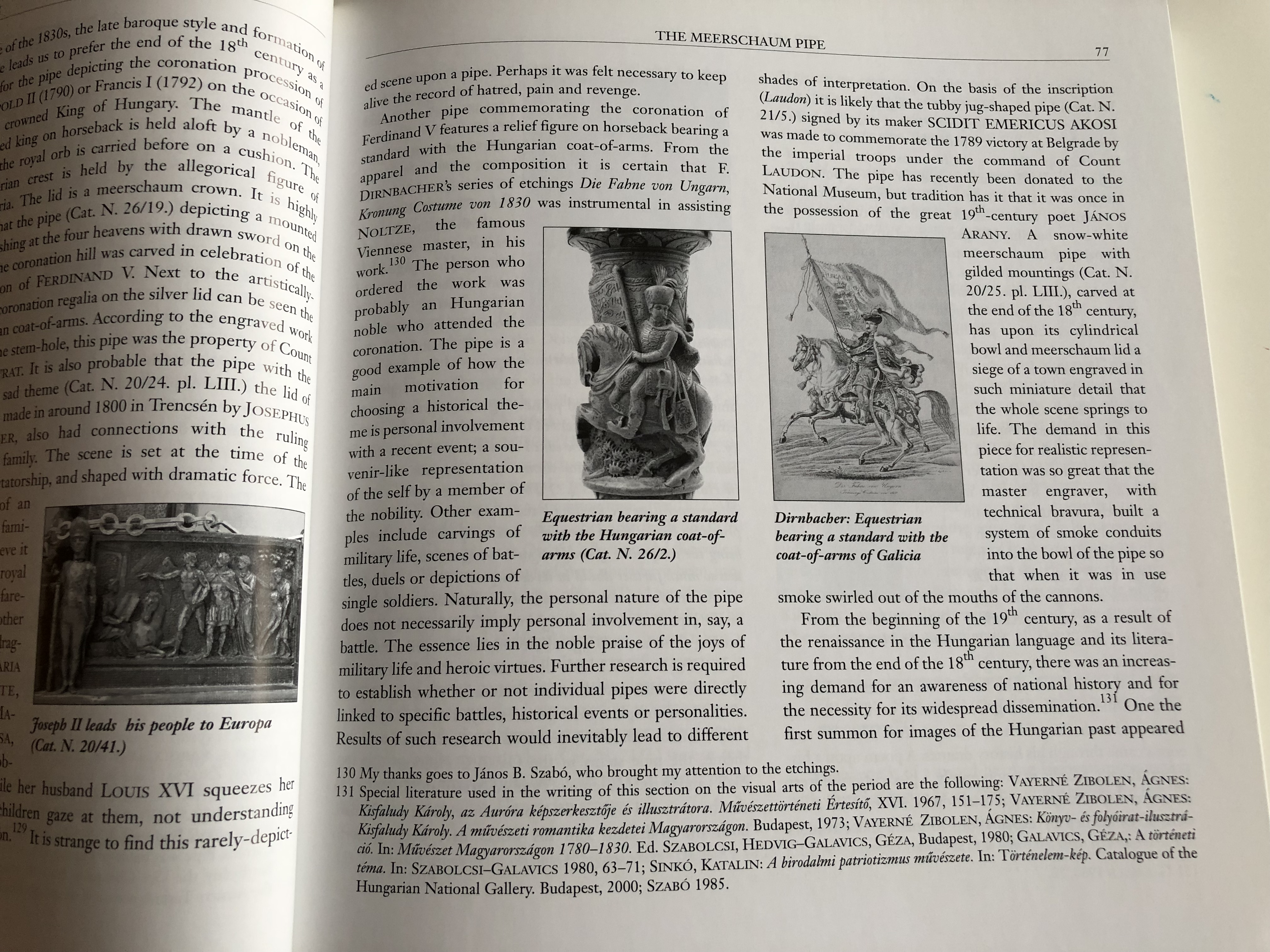Description
The History of the Hungarian Pipemaker's craft / Hungarian History through the Pipemaker's Art
THIS IS A VERY RARE PUBLICATION!
Magyar Nemzeti Múzeum / Hungarian National Museum / Ungarisches Nationalmuseum, Budapest
Kiadó / Publisher: Hungarian National Museum, 2000 / Keszthely, Balatoni Museum / Debrecen, Deri Museum
Paperback
ISBN: 9639046507, 9789639046504, 978-9639046504
Terjedelem / Pages: 255 oldal
Szerkesztők / Scenario written and exhibition organized by: Edit Haider, Angelika Orgona
Translators: Andy Rouse, Steve Starkey
CONTENTS:
The Spread of Tobacco-Smoking / The beginnings of Pipe-Smoking (Dr. Irnák Osskó) 13
The Passage of Tobacco from America to Europe (Dr. Irnák Osskó) 14
The Spread of Tobacco-Smoking in Hungary (Edit Haider) 20
Pipe Types cavated Pipes from the 16 to the 18 Century in Hungary (Gábor Tomka) 25
The Debrecen Clay Pipe (Dr. Emőke P. Szalay) 33
The Árt of the Selmecbánya Pipe (Mgr. Eva Lovásová) 39
Transdanubian Pipe Manufacturers Associated with Selmecbánya (Dr. Zoltán Nagy) 45
Factory-Made Ceramic Pipes (Edit Haider) 56 The Wood Pipe (Edit Haider) 58
The English Briar (Edit Haider) 61 The Meerschaum Pipe (Edit Haider) 62
Carved Meerschaiim Pipes 64
The New Meerschaum Fashion and its Master Craftsmen 68
Historic Themes on Pipes and Pipe Stems (Anna Ridovics) 74
The Repairing of Meerschaum Pipes 93
Pipe-Smoking Accessories (Edit Haider) Pipe Stems and Chibouque Stems 95
Tobacco Boxes, Tobacco Pouches and Fire-Lighters 97
Pipe-Racks 99
Famous Pipe Coflections The Pipe Collection of István Bárczy (Edit Haider) 101
The Blaskovich Collection (Edit Haider) 102
My Pipe Collection — Confessions of the Collector (Dr. Irnák Osskó) 104
List of Pipe Engravers of Pest-Buda (Compiled by Edit Haider) 109
Literature about Hungarian Pipes (Compiled by Dr. Irnák Osskó) 113
Catalogue The Spread of Tobacco-Smoking in Hungary. Different Ways of Smoking 119
Clay Pipes and Wood Pipes in Hungary 143
Meerschaum Pipes History. History on Meerschaum Pipes 175
Masters and Collectors at the Turn of the 1 9—20 Centuries 229
Abbreviations in the Text 253
Index. The Present Foreign Names of Mentioned Former Hungarian Settlements 253
PREFACE
The earliest pipes and pipe-smoking accessories of outstanding cultural history value entered the Hungarian National Museum collection in the mid 1860's. In addition to the historical value of pipes of famous personalities - Ferenc Rakoczi II, Ferenc Wesselenyi, Sandor Kisfaludy, Mihaly Vorosmarty and Janos Vajda - knowledge of smoking history was furthered by the remarkably skillfully wrought pipe-carvings as works of applied art. Regrettably, a major portion of this collection was destroyed during World War II. In the early 1970's the Hungarian National Museum purchased some 500 pipes from the estate of the noted collector and former mayor of Budapest, Istvan Barczy, the collection featuring the works of master Hungarian meerschaum carvers and other European, mainly Austrian and German pipe-makers. as a result of consistent museological collection and cataloguing, the Hungarian National Museum today possesses the largest and the most significant Smoking History Collection in Hungary.
Through studies and articles by noted authors, this book offers a summary of the Hungarian history of smoking and pipe-collecting. It deals with the pipe finds from archeological digs, the activities of early pipe-making centers, and the making of pipes of various materials and forms. A separate study analyzes the historical subject appearing on pipes and pipe-stems, also identifying the drawings on which the sculpted depictions on the pipes were modeled. With the aid of the exhibition catalogue section of this book, the visitor may not only follow the material on display but also gain a comprehensive view of a hitherto little-known area of art history uniquely combining Hungarian cultural history and applied art.
The year 2000 is an especially great occasion for Hungarians throughout the world. One thousand years ago the Hungarian state was formed when King Stephen The Saint converted to Christianity and was crowned king. He had succeeded in establishing a state and culture which, despite its linguistic isolation, would survive and take root in the Carpathian Basin, fitting into the family of European nations. To quote Gyula Illyes: "...a people may live a thousand years only by means of miracles: on the model of the phoenix." Hungarian-ness, like the phoenix, has always been capable of rebirth, not only preserving but also enriching its culture.
The Millennium - like other historic anniversaries - has directed public attention to the outstanding values of the national cultural heritage. The characteristic forms of manifestation of this are the exhibitions held in the museums. The pipe history exhibition jointly organized by the Hungarian National Museum and the Balaton Museum of Keszthely takes a worthy place among these, as well as being the most significant presentation to date of the Smoking History Collection of the Hungarian National Museum. The exhibition will be on display at the Balaton Museum from April to September, 2000, then at the Deri Museum in Debrecen, and finally at the Hungarian National Museum.
Budapest, June, 2000
Dr. Janos Pinter
Deputy Director-in-Chief
Hungarian National Museum
